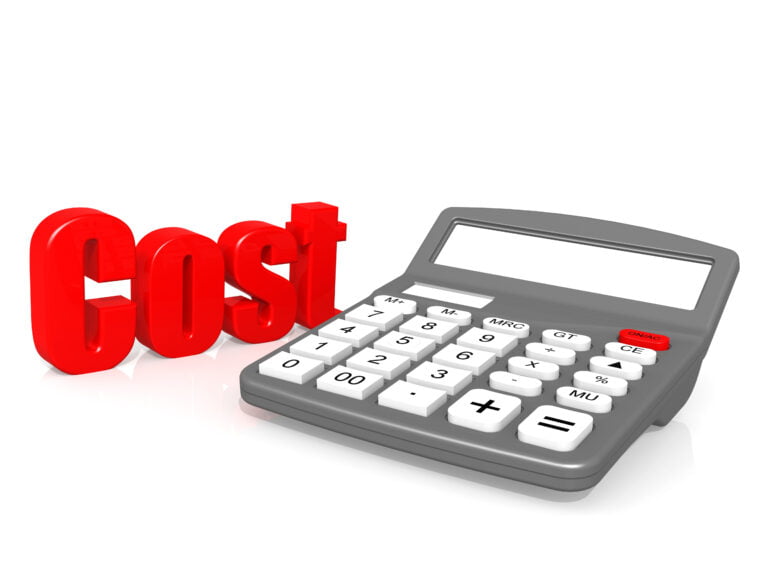Could I ‘Trade Up’ to a Luxury Home?
Could I ‘Trade Up’ to a Luxury Home?


Table of Contents
Introduction
In the dynamic landscape of homeownership, there often arises a pivotal moment where the allure of a larger, more suitable dwelling beckons. It might stem from the joyous anticipation of a growing family, the quest for a more vibrant neighborhood, or simply a yearning for additional space to call one’s own. Whatever the motivation, the decision to embark on the journey of trading up in the housing market is not one to be taken lightly. Amidst the excitement of envisioning a new chapter in a new home, there lies a critical precursor: the evaluation of whether your current abode has accrued enough equity to facilitate this transition seamlessly.
The concept of home equity, a cornerstone of homeownership, underpins this assessment. It represents the bedrock of financial stability within the realm of real estate, embodying the tangible value that you, as a homeowner, have accrued in your property over time. Understanding the nuances of home equity is paramount as you embark on the journey of determining whether your dwelling is poised to propel you forward into the next phase of homeownership.
As such, this comprehensive guide endeavors to illuminate the path toward discerning whether your current home boasts sufficient equity to underpin a successful trade-up. From unraveling the intricacies of home equity to navigating the myriad factors influencing your decision, this exploration aims to equip you with the knowledge and insights necessary to embark on this transformative endeavor with confidence and clarity. So, let us embark on this journey together, delving into the depths of home equity and paving the way toward realizing your aspirations of trading up to your dream home.


Understanding Home Equity
In the intricate tapestry of homeownership, home equity emerges as a pivotal thread, weaving together the financial fabric of property ownership. At its core, home equity encapsulates the essence of ownership—the tangible manifestation of your stake in your home. To grasp its significance fully, it’s essential to dissect its components and comprehend its fluid nature within the ever-evolving real estate landscape.
At its essence, home equity represents the disparity between the current market value of your home and the outstanding balance on any mortgage loans secured by the property. It’s akin to the proverbial nest egg—a reservoir of wealth that accumulates gradually as you navigate the trajectory of mortgage payments and fluctuations in property values. With each installment paid toward your mortgage, you chip away at the debt owed while simultaneously fortifying your ownership stake in your home.
Yet, home equity is not static; rather, it ebbs and flows in tandem with the currents of the housing market. Market fluctuations, property appreciation, and mortgage dynamics all exert their influence, shaping the contours of your equity position. In times of economic prosperity, property values ascend, bolstering your equity reserves and imbuing your home with enhanced value. Conversely, during downturns, the tides may recede, temporarily dampening your equity outlook.
Navigating the realm of home equity requires a nuanced understanding of its myriad facets. It’s not merely a numerical figure on a balance sheet but a reflection of your investment in your home and, by extension, your financial well-being. By delving into the depths of home equity, homeowners can glean valuable insights into their financial standing, empowering them to make informed decisions regarding their housing aspirations.


Assessing Your Current Home Equity
Before embarking on the journey of trading up to a new home, it is imperative to embark on a thorough assessment of your current home equity. This foundational step serves as the bedrock upon which your decision-making process will be built, offering invaluable insights into your financial position within the realm of homeownership.
To begin this assessment, you must first obtain an accurate estimate of your home’s current market value. Numerous avenues exist for gauging this value, ranging from online valuation tools and real estate websites to professional appraisers and seasoned real estate agents familiar with your local market. While online estimations provide a convenient starting point, they may not always capture the nuances of your property or the intricacies of your local market. In contrast, professional appraisers and real estate agents bring a wealth of expertise and localized insights to the table, offering a more nuanced perspective on your home’s value.
Once armed with an estimate of your home’s market value, the next step entails assessing any outstanding mortgage balances secured by the property. This involves scrutinizing your mortgage statements to ascertain the remaining principal owed on your loan(s). By subtracting this outstanding balance from your home’s estimated market value, you arrive at your net home equity—a quantifiable measure of your ownership stake in your property.
However, it’s crucial to recognize that home equity extends beyond mere numerical calculations; it embodies the culmination of your investment in your home, encompassing both financial and emotional dimensions. As you reflect on your home equity position, consider the broader context of your homeownership journey—the memories forged within its walls, the milestones celebrated under its roof, and the aspirations it embodies. This holistic perspective fosters a deeper appreciation for the significance of home equity and underscores its role as a cornerstone of your financial well-being.


Factors to Consider When Trading Up
Trading up to a new home entails a multifaceted decision-making process that extends beyond the realm of home equity alone. As you contemplate this significant transition, it’s essential to consider a myriad of factors that can influence the feasibility and desirability of your trade-up endeavor. From market dynamics to personal preferences, each factor plays a crucial role in shaping your decision and ensuring a seamless transition to your new abode.
The prevailing conditions of the housing market wield considerable influence over your trade-up prospects. Factors such as inventory levels, interest rates, and demand-supply dynamics can impact both the sale of your existing home and the purchase of your new one. In a seller’s market characterized by high demand and limited inventory, you may find it easier to sell your home but face heightened competition and inflated prices when purchasing a new one. Conversely, in a buyer’s market marked by ample inventory and subdued demand, you may encounter challenges in selling your home but benefit from favorable pricing and negotiating leverage when buying.
Your financial standing plays a pivotal role in determining the feasibility of trading up to a new home. Assess your current income, savings, and debt obligations to gauge your ability to afford a more expensive property. Consider factors such as down payment requirements, closing costs, and ongoing mortgage payments in your financial calculations. Additionally, evaluate the impact of a potential increase in housing expenses on your overall budget and long-term financial goals.
Anticipating your future housing needs is essential when trading up to a new home. Consider factors such as family size, lifestyle preferences, and long-term plans to ensure that your new home aligns with your evolving needs and aspirations. Assess whether the prospective property offers the space, amenities, and location conducive to your desired lifestyle and future growth. Additionally, factor in considerations such as school districts, proximity to amenities, and community amenities that may influence your decision.
Trading up to a new home entails not only purchasing a new property but also selling your existing one. Factor in the costs associated with selling your home, including real estate agent commissions, closing costs, and potential home staging expenses. Additionally, consider the time and effort required to market and sell your home effectively in the current market conditions. Planning for these expenses upfront can help mitigate financial surprises and ensure a smooth transition to your new home.
In addition to selling costs, trading up to a new home involves various expenses associated with purchasing a new property. Factor in the down payment required for your desired home, as well as closing costs, home inspection fees, and potential repair costs. Additionally, consider the possibility of contingencies such as appraisal shortfalls or financing issues that may arise during the purchasing process. By budgeting for these expenses upfront, you can avoid financial strain and streamline the homebuying process.
Navigating the myriad factors influencing your decision to trade up to a new home requires careful consideration and strategic planning. By assessing market conditions, evaluating your financial situation, anticipating future housing needs, and accounting for selling and purchasing costs, you can make informed decisions that pave the way for a successful transition to your dream home.


Calculating the Equity Needed to Trade Up
Determining the equity needed to facilitate a trade-up to a new home is a critical step in the decision-making process. This calculation serves as a compass, guiding you toward the financial threshold required to navigate the transition seamlessly. By understanding the components of this equation and conducting a thorough assessment of your financial position, you can ascertain the equity needed to realize your housing aspirations.
One of the primary components of the equity needed to trade up is the down payment required for your new home. Lenders typically require a down payment as a percentage of the purchase price to secure a mortgage loan. The exact amount of the down payment varies depending on factors such as the type of mortgage, your creditworthiness, and the lender’s requirements. Common down payment percentages range from 3% to 20% or more of the purchase price. By determining the purchase price of your desired home and the corresponding down payment percentage, you can calculate the down payment amount needed to facilitate the trade-up.
In addition to the down payment, trading up to a new home entails various closing costs that must be accounted for in the equity calculation. Closing costs encompass a range of expenses associated with finalizing the purchase transaction, including loan origination fees, title insurance, appraisal fees, and attorney fees, among others. These costs typically amount to a percentage of the purchase price and can vary depending on factors such as location, property type, and lender requirements. By estimating the anticipated closing costs for your new home purchase, you can incorporate these expenses into your equity calculation and ensure that you have sufficient funds to cover them.
Another consideration when calculating the equity needed to trade up is the cost of moving from your current home to your new one. Moving expenses can encompass a wide range of costs, including hiring professional movers, renting a moving truck, purchasing packing supplies, and transporting belongings. Additionally, consider any potential storage costs if there is a gap between the sale of your current home and the purchase of your new one. By estimating the anticipated moving expenses associated with your trade-up, you can factor these costs into your equity calculation and ensure that you have adequate funds set aside to cover them.
Finally, it’s essential to consider the importance of maintaining reserve funds to cushion against unforeseen expenses or financial emergencies. While the equity needed to trade up primarily focuses on covering the down payment, closing costs, and moving expenses, having additional funds set aside for contingencies can provide peace of mind and financial security. Aim to maintain a reserve fund equivalent to several months’ worth of living expenses to safeguard against unexpected challenges and ensure a smooth transition to your new home.
By incorporating these factors into your equity calculation, you can determine the total equity needed to facilitate a successful trade-up to your dream home. By diligently assessing your financial position, budgeting for anticipated expenses, and maintaining reserve funds, you can embark on this transformative journey with confidence and clarity, knowing that you have the financial resources necessary to navigate the transition seamlessly.


Strategies to Boost Home Equity
If your current home falls short of possessing sufficient equity to facilitate a comfortable trade-up, all hope is not lost. There exist various strategic avenues through which you can bolster your equity position, fortifying your financial foundation and inching closer toward your dream of trading up to a new home. From proactive financial management to strategic property enhancements, these strategies offer a roadmap for optimizing your home equity and realizing your housing aspirations.
One effective strategy for boosting home equity is to make accelerated mortgage payments. By making additional principal payments on your mortgage, you can expedite the reduction of your loan balance and accelerate the accumulation of equity in your home. Consider allocating surplus funds, such as bonuses, tax refunds, or windfalls, toward paying down your mortgage principal. Even modest additional payments made consistently over time can yield substantial long-term benefits, reducing your mortgage term and accruing significant equity savings.
Another avenue for enhancing home equity lies in strategically enhancing your property’s value through renovations or improvements. Identify areas of your home that have the potential for improvement or enhancement, such as kitchens, bathrooms, or outdoor living spaces, and invest in targeted upgrades that yield a favorable return on investment. Focus on renovations that enhance both the aesthetic appeal and functionality of your home, thereby maximizing its market value and equity potential. Consult with real estate professionals or remodeling experts to identify high-impact projects that align with your budget and goals.
While market appreciation is beyond your direct control, it can significantly impact your home equity position over time. Monitor local market trends and economic indicators to gauge the trajectory of property values in your area. In periods of market appreciation, your home’s value may increase organically, bolstering your equity reserves without any additional effort on your part. Stay informed about factors influencing property values, such as demographic shifts, economic growth, and infrastructure developments, to capitalize on opportunities for equity growth in your market.
Managing debt responsibly is paramount to preserving and enhancing home equity. Avoid taking on additional debt secured by your home, such as home equity loans or lines of credit, which can erode your equity position and jeopardize your financial stability. Prioritize debt repayment and aim to reduce high-interest debts, such as credit card balances or personal loans, to free up resources for building equity in your home. By maintaining a disciplined approach to debt management, you can safeguard your equity position and position yourself favorably for future opportunities.
Finally, one of the most effective strategies for building home equity is simply to maintain long-term ownership of your property. Historically, real estate has demonstrated a tendency to appreciate in value over time, albeit with fluctuations and market cycles. By remaining invested in your home for an extended period, you can benefit from the compounding effect of property appreciation and mortgage principal reduction, steadily accruing equity with each passing year. Embrace homeownership as a long-term investment strategy, and commit to nurturing and enhancing your property over time to maximize its equity-building potential.
By implementing these strategic approaches to home equity enhancement, you can position yourself for success in trading up to a new home. Whether through accelerated mortgage payments, value-enhancing renovations, market appreciation, debt management, or long-term ownership, each strategy offers a pathway toward realizing your housing aspirations and achieving financial security. Embark on this journey with confidence, knowing that you have the tools and resources necessary to bolster your equity position and unlock the door to your next chapter of homeownership.


Ensuring a Successful Trade-Up
In the realm of homeownership, the decision to trade up to a new home represents a significant milestone—a testament to your evolving needs, aspirations, and ambitions. As you embark on this transformative journey, fueled by the promise of new beginnings and fresh horizons, it’s essential to navigate the terrain of home equity with clarity, foresight, and strategic acumen. By harnessing the power of home equity and embracing sound financial principles, you can pave the way toward a successful trade-up and embark on the next chapter of your homeownership odyssey with confidence and assurance.
Throughout this exploration, we’ve delved into the intricacies of home equity, unraveling its mysteries and elucidating its profound implications for your housing journey. From understanding its fundamental principles to assessing your current equity position, we’ve laid the groundwork for informed decision-making and empowered you with the knowledge necessary to navigate the complexities of the trade-up process.
Armed with this understanding, you’ve embarked on a journey of self-discovery—a voyage into the depths of your financial landscape and the contours of your housing aspirations. As you traverse this terrain, remember to consider the myriad factors influencing your decision, from market conditions to financial considerations, and from future housing needs to strategic equity-building strategies.
In the pursuit of your dream home, resilience and resourcefulness will be your allies, guiding you through the twists and turns of the real estate landscape. Whether through prudent financial management, strategic property enhancements, or diligent market monitoring, you possess the tools and the tenacity to realize your vision and unlock the door to your next chapter of homeownership.
So, as you stand at the threshold of possibility, poised to embark on this exhilarating journey of trade-up homeownership, remember that the path forward is illuminated by the light of knowledge, fortified by the strength of determination, and fueled by the unwavering belief in your ability to achieve your dreams. With home equity as your compass and your aspirations as your North Star, step boldly into the future, knowing that the key to your dream home lies within your grasp.
FAQ Section
If your current home lacks sufficient equity for a trade-up, don’t despair. There are several options to consider. You could delay your move until your home accumulates more equity through mortgage payments and market appreciation. Alternatively, you might explore ways to boost your home’s value through strategic renovations or improvements. Additionally, saving more for a larger down payment can help bridge the gap between your current equity and the equity needed for your desired trade-up.
Assessing your affordability for a luxury property involves conducting a comprehensive evaluation of your financial situation, lifestyle preferences, and long-term goals. Begin by calculating your total income, assets, and liabilities to determine your financial capacity. Consider the ongoing expenses associated with luxury property ownership, including mortgage payments, property taxes, maintenance costs, and insurance premiums. Consult with financial advisors and real estate professionals to gain insights into market trends, financing options, and affordability thresholds. Ultimately, the decision to purchase a luxury property should align with your financial means, lifestyle aspirations, and risk tolerance.
Yes, you can leverage the equity in your current home to finance the down payment for your new home. This can be done through various means, such as a home equity loan or a cash-out refinance. However, it’s essential to consider the implications of tapping into your home equity, including potential fees, interest rates, and repayment terms. Consult with a financial advisor or mortgage lender to explore the best options based on your individual circumstances.
The time required to build enough equity depends on several factors, including your mortgage terms, property value appreciation rates, and any additional payments made towards your mortgage principal. Generally, it takes several years of consistent mortgage payments and/or home value appreciation to accumulate sufficient equity for a trade-up. However, there is no one-size-fits-all answer, as individual circumstances vary. Monitoring your equity position regularly and exploring opportunities to accelerate equity growth can expedite the process.
While trading up with existing home equity can be a viable option, it’s essential to consider potential risks and pitfalls. Market fluctuations, unexpected expenses, and changes in personal financial circumstances can all impact your trade-up plans. Conduct thorough research, assess your financial readiness, and consider consulting with real estate professionals and financial advisors to mitigate risks and ensure a successful trade-up. Additionally, explore contingency plans and alternative options to safeguard against unforeseen challenges along the way.
Fractional Ownership: Maximizing Opportunities in the Real Estate Market
Fractional ownership can often be a great option for purchasing and selling luxury property. All of
5 Proven Strategies to Boost Your Home Equity
Want to boost your home equity? Here are five proven strategies that work.
How to Know if You Can Afford a Luxury Property
Can you afford a luxury property? With the equity in your current home and many financing options, i












